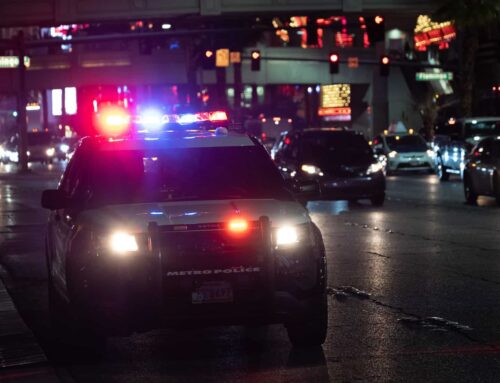Texas State law regarding ignition interlock devices
Texas State law regarding ignition interlock devices – According to MADD, the state of Texas is the leader in fatalities cause by drunken driving. In the past year, a whopping 1,446 fatalities were reported as a result of DUI.
Clearly this calls for care and mindfulness when considering if to drink and drive or not. What starts out as a good time can easily turn into a tragic affair no one had anticipated.
What is considered as a DUI in Texas?
DUI can be generally defined as driving under the influence of alcohol, or other intoxicating substances. For you to be considered DUI in the state of Texas, you must have met one of the following qualifications.
- You are over 21 years and have a BAC of .08%
- Are above 21years and a CDL holder and have a BAC of .04%
- Are under 21 years (minor) and have a BAC that is detectable in your system.
First of all, it is important to mention that if you are a minor (that is anyone under the age of 21), you are even not allowed to consume alcoholic beverages in public, leave alone drive after consuming one.
What is BAC?
BAC stands for Blood Alcohol Concentration. The given percentages are predetermined by the law and hence dictate how much alcohol a person can have in their system before they operate a vehicle.
Most people are curious how they can know what alcoholic drink to drink and in what quantity to avoid exceeding the allowable limits. This however is a hard one to answer because a lot of factors are in play when you get drunk.
One needs to consider, their gender, the type of drink (a glass of whisky is most likely more potent than a glass of beer); their weight and probably whether they are drinking on an empty stomach or not, et cetera. Such are the things one needs to consider.
However you can look up the Texas Alcoholic Beverage commission website to for more information and to see the BAC chart.
What is IID?
IID stands for Ignition Interlock Device. This is a device that is installed in a person’s car, and acts as a breathalyzer test before the vehicle can start.
The device comes with a predetermined limit above which a vehicle will not start.
This is how it works; a driver will get in the car, and insert the car keys in, but before the car can start, they are required to breathe into the device. Once they breathe into the device, it will determine if a person has been drinking and if they have been drinking, how much alcohol is in their system.
If it is above the legal state limits, then it transmits the message to the car and the car stalls. Until, the alcohol levels go down, there is no way the vehicle will start.

Example of how Ignition Interlock Device may look like
When can one be ordered to install an IID?
Before that can be discussed, we need to understand the basic penalties that come with DUI offenses.
| Offense | Jail Time | Fines | Others |
|---|---|---|---|
| 1st DUI | 3-180 days | $2,000 | 1. Annual surcharge of $2,000
2. DUI intervention or education 3. 2 year license suspension 4. IID possibility |
| 2nd DUI | Up to 2 years | $4,000 | 1. $2,000 annul surcharge
2. 2 year license suspension 3. Alcohol intervention program 4. IID requirement |
| 3rd DUI | 2-10 years in jail | $10,000 | 1. $2,000 annual surcharge
2. 2 year license suspension 3. Alcohol intervention program 4. IID requirement |
1st DUI
Because of the seriousness of DUI, no offense is taken lightly. Therefore, despite it being your first time, you may have to spend time in jail (up to 6 months), will have to fork deep into your pocket for fines and a lot more than you had bargained for.
For instance, you may have to pay what is known as an annual surcharge. This is money you pay in order to continue having your license.
That does not mean to lift off the suspension; rather, it means to continue being considered a driver under Texas state law.
There is the little bit of you having to attend an alcohol intervention or education program. While this may seem like a small issue, you cannot bail out on the program as this may lead to harsher punishment.
Like an addition of time on a suspended driving license. Do not be surprised if it is treated as contempt of court.
Depending on the circumstances of your DUI, the BAC levels in your system and your general conduct as you were driving the car, you may unfortunately find yourself with an IID requirement for your car.
While 1st DUI offenders mostly get away with it, we cannot stress enough the uniqueness of each case.
There is also the not so small matter of a SR22 requirement. This too may be added along your charges, meaning your insurance is about to go up significantly.
2nd DUI
For a second timer, you seem like you are enjoying the punishment. However do not worry as the law has instituted special measures to deal with your situation.
Case in point; while a 1st time DUI may have been seen as a lapse in judgment, the law does not take subsequent DUIs very lightly.
For this reason, this time round an IID is not a possibility but is hence forth a necessity for you before you get behind the wheel. What is not interesting but a fact too, is because there is very high possibility that you will have also gotten your license suspended, you may need to acquire a SR22.
3rd DUI
Well, maybe all people need to do for a person who is on a third DUI is sympathies? Not really.
You need to understand there is a real chance of going to jail for up to 10 years. Along with all the other requirements that are necessary for you to continue being a driver in Texas.
These are not the only situations that will require you to have an IID. There are other special cases that will lead to this requirement.
The drunk minor
The law in Texas takes minors and DUI very seriously. While you are allowed to drink, you may find it of interest that a couple of things you may have taken for granted when it comes to alcohol may land you in a lot of trouble.
However, let us delve with the main issue, the DUI scenario.
DUI (minor)
- Your license will be suspended for a period not exceeding 1 year.
- You will pay up to $500.
- You must attend Alcohol education for a minimum of 12 hours
- Failure to complete the alcohol education program will lead to an additional 180 days to the suspension.
- You may also get community service. Of which will reduce the suspension to 90 days.
- You must install an IID in your vehicle.
- You may need to acquire a SR22 depending on the circumstances and conditions to get your license back.

Underage DUIs can have serious consequences to future life.
DUI vehicular manslaughter
Any DUI offense is serious. But admittedly some offenses have far more reaching consequences than others. Vehicular manslaughter is one such offense. You see, you are no longer in the ‘just an offense zone’, but have jumped the rope to crime.
The law that governs this type of an offense is administered under Penal Code, Offenses against Public Health, Safety, And Morals, chapter 49. Intoxication And Alcoholic Beverage Offenses, section 49.08 and basically states that if you operate a vehicle, aircraft or boat while under the influence of alcohol and in the process cause an accident which leads to the death of another person, then you have committed a felony of the 2nd degree.
To further understand the legal implications of this felony, follow http://www.statutes.legis.state.tx.us.
You will be defending yourself against homicide and therefore you may be well advised to seek the services of a criminal lawyer. In Texas, the crime of ‘Intoxication manslaughter’ has been singled out unlike in other states, and is therefore treated as an independent offense.
Meaning, as you deal with the charges of DUI, you will deal will intoxication manslaughter independently. A guilty verdict for your intoxication manslaughter charges will have you looking at the following;
- A minimum of 2 years (this is a mandatory sentence) to a maximum of 20 years behind bars.
- A fine of up to $10,000.
- A license suspension of between 180 days and 2 years.
- Mandatory community service of a minimum of 240 hours and up to 800 hours in the state of Texas. This is in addition to jail time and fines that are already imposed on you.
Intoxication assault
Under section 49.09, a person who while intoxicated or under the influence controlled substances or of alcohol, operates a motor boat, an aircraft, an amusement ride or a vehicle and in the process causes grievous bodily harm or injuries to another is guilty of intoxication assault.
Note, bodily harm in this case refers to a situation where the victims life may be lost, or if the person loses a limb or is disfigured and loses the use of part of their body organs. Intoxication manslaughter is a #r degree felony and you will therefore be facing criminal charges. If found guilty, you are looking at;
- A period of 2 to 10 years in jail.
- A fine of up to $ 10, 000.
- A license suspension of between 180 days and 2 years.
Intoxication with a child in the vehicle
If you decide to drive a vehicle while intoxicated with a child of 15 years and below in the vehicle, are arrested, prosecuted and found guilty, then understand you are guilty of a state felony. You will probably;
- Be sent to jail for up to 2 years
- Pay a fine of up to $10,000
- Have your license suspended for up to 180 days.
Refusal to take a chemical test
Under the implied law in Texas, it is assumed that as long as you are driving, you will submit to a chemical test whenever required to take one by law enforcement officers. However, not all people agree to chemical tests.
Probably because they are being defiant, or are aware that if they take the test, the repercussions of the results may be far worse than if they had taken the test. Refusal to take the test has instant consequences.
This is what you will be contending with in the event of such a decision.
Administrative License Revocation will be slapped on you immediately. This in essence means the officer at the scene will immediately institute the procedure to revoke your license. At first offence, your license will be suspended for up to 180 days.
For a second offense your license may be revoked for up to 2 years. The same applies to minors who decline the chemical test.
The officer however must read you your Miranda rights and take the take the test as soon as is possible.
You will be given a temporary driving license and must appeal the revocation within 15 days. If you do not, 40 days after the day of your arrest, your license will formally be revoked.
The importance of the IID
The most likely outcome of all these circumstances is you will face heavy penalties, possible jail time and will be required to install an IID. However, choose the positive side of the IID.
Usually, for a fist time offender you can bargain with court by agreeing to install the IID. This can help you have your sentence reduced or other penalties reduced.
So you see there is light in installing the IID. Not forgetting that by using it, you are able to avoid future chances of having a DUI simply because you won’t drive.

Ignition Interlock devices prevented 1,77 MILLION engine starts because of alcohol content in the driver’s body.
There is more to it
Apart from installing an IID you will most likely be required to acquire SR22. Your insurance company should take care of it.
While a lot of what may be going on in your circumstances may be jargon, there are experts who know exactly what to do and how. We are a solution to this kind of a situation.
Our expertise in high risk insurance should offer you comfort in knowing that you are dealing with the most equipped and most experienced in the field. We are able and willing to work with you to reduce the stress you may be going through at such a confusing and trying time.
It is true that dealing with people who do not have the expertise will eventually cost you a lot more than you had anticipated. The need for an IID or SR22 will mark you as a high risk driver and you may lose your insurance company.
However, this is our job, and will therefore not add to the stress.
Take caution
DUI is never a good idea. Don’t make a choice to drive in such condition.
Most of serious auto accidents are result of DUI incidents. While Texas tops the charts for most fatal DUI accidents, legislation has been put in force to ensure that these statistics go down.
But the fact is the law can only do so much. The best and most effective way to control DUI incidents is simply by taking personal responsibility.
Making the decision to be sober is possibly the best decision one can make. Of special interest though is committing a DUI offense while carrying children.
Take it very seriously. It is better the children than to drive them to their death. Whatever the decision, remember, safety comes first.
If you have questions, don’t hesitate to call: (855) 438-7353. One of our licensed agents will help you right away.






